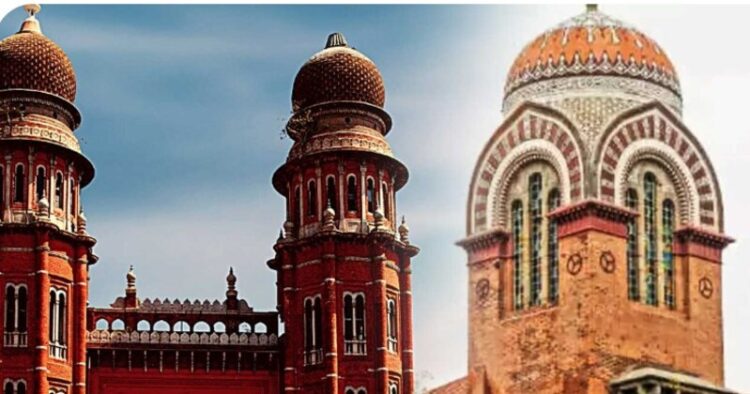The Madras High Court, during a recent hearing, has expressed its concern at the cryptic delay in appointing a new vice-chancellor for the University of Madras. The court raised relevant questions about the impact of this vacancy on the university’s administrative and academic affairs. The University of Madras has been functioning without a vice-chancellor since August 23 i.e. seven months approximately. This led the Madras High Court to express its deep concern over the prolonged vacancy in the crucial leadership position.
Vice-chancellor plays a pivotal role in the decision-making process at the university. Important policy decisions, academic alterations, and various administrative matters have been left unattended. This has left a growing sense of unease among students, faculty, and related stakeholders.
Experts suggest that such a prolonged delay in a potential leadership position could potentially hinder the university’s progress and tarnish its reputation in the general public. Due to bureaucratic hurdles and delay, the search for a suitable candidate could not be fulfilled. Henceforth, prompting the judiciary to intervene and urge the concerned authorities to expedite the appointment process as early as possible.
The Madras High Court has emphasized on the need for a prompt resolution in this matter. Along with this it is also important to have transparency in the selection process of vice chancellor. The court also requested for regular updates from the university administration regarding the progress related to the appointment. The prolonged absence of a figurehead of the Madras University has also raised concerns about its ability to attract and retain top-tier faculty members and students. In terms of leadership, University of Madras is at a standstill, and there are growing fears that it may lose its competitive edge in the academic landscape in near future.
Backstory of University of Madras Vice Chancellor
In a surprising turn of events, the Madras High Court issued an interim order, shedding light on a writ petition filed by advocate B. Jagannath in 2023. He had filed a legal request in 2023, asking for a University Grants Commission (UGC) nominee to be part of the team choosing the vice-chancellor. The court agreed that it was a good idea to have different people in the group making this important decision.
Advocate B. Jagannath’s demand on UGC representation in the selection process prompted the High Court’s observations during the passing of the interim order. The court stressed on the importance of having a diverse and inclusive search panel as this will ensure a fair and thorough evaluation of candidates for the crucial academic leadership role.
In subsequent proceedings, the Division Bench revealed that earlier the Legislative Assembly had passed a bill proposing the Chief Minister as the Chancellor of all State universities. The bill, though approved by the Assembly, faced a roadblock as the Governor who needed to approve this idea, said no.
In response to this halt, the Madras State government decided to escalate the matter to the Supreme Court. The unresolved status of the bill also adds a layer of uncertainty to an already extended selection process, moreover, it raises questions about the potential impact on the university’s governance structure.
Evidently, the court’s intervention signals a wake-up call for the institute authorities involved in the selection process. It urges them to prioritise the appointment of a qualified and capable individual to lead the University of Madras as vice chancellor. All stakeholders, be it students, faculty, and alumni are eagerly waiting for the resolution. As legal battles unfold, everyone related to this desires for an easy and prompt resolution that ensures transparency and stability in the leadership of the esteemed University of Madras.
Accepting the request of State Government Pleader, A. Edwin Prabhakar, the Bench has granted an adjournment till April 2, 2024, as a last chance.




















Comments